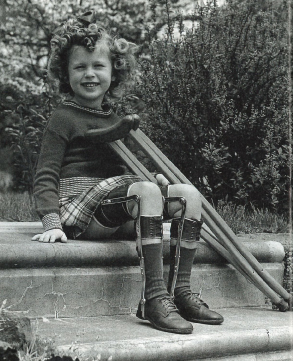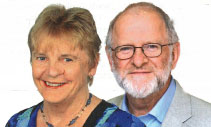 Thousands of people who overcame polio as kids are feeling the disease's effects as they age.
Thousands of people who overcame polio as kids are feeling the disease's effects as they age.It took Anne Fitzpatrick a while to make the connection between her worsening fatigue and the fact she'd had polio as a baby during one of New Zealand's last epidemics of the disease in 1953.
Polio had a big effect on Fitzpatrick's childhood, temporarily paralysing her right leg below the knee. She wore a caliper until she was 10, and although she regained her mobility - and was very active as a teenager, taking part in competitive swimming, diving, netball, and tennis - she walks with a limp.
That eventually caused arthritis in her right ankle, which has been operated on three times.
She'd always experienced some tiredness but it wasn't until she joined Polio New Zealand (an organisation that supports polio survivors) that she realised the deep fatigue she was feeling was a symptom of what's known as the late effects of polio (LEoP) or post-polio syndrome.
"Fatigue is the standout symptom - for me, it went well beyond just having a tired leg." Her other symptoms include respiratory problems and intolerance for ''some drugs, particularly anesthetics. "I get really knocked around with anesthetics."
 Before a vaccine came along in the mid-1950s, polio killed thousands of children worldwide every year and left many thousands more with permanent muscle weakness. The disease has now been almost completely eradicated. Although polio may be a fading memory for most people, up to 6000 New Zealanders in their sureties and older are now dealing with the long-term effects of the virus.
Before a vaccine came along in the mid-1950s, polio killed thousands of children worldwide every year and left many thousands more with permanent muscle weakness. The disease has now been almost completely eradicated. Although polio may be a fading memory for most people, up to 6000 New Zealanders in their sureties and older are now dealing with the long-term effects of the virus.Their symptoms include fatigue, muscle pain and weakness, joint pain and sleeping and breathing difficulties. Some, like Fitzpatrick, have an unusual sensitivity to anesthetics. "It's really important for anesthetists to know if someone had polio."
Anne Fitzpatrick, & Gareth Parry.
The symptoms of LEoP are caused by damage to the nerves that control muscle movement. Although the body can Anne compensate for this damage for many years, it eventually starts to take its toll.
According to neurologist Gareth Parry, LEoP affects not only people who had paralytic polio but also those who had a milder form of the disease. Parry spoke at a recent seminar in Wellington organised by Fitzpatrick to raise awareness about LEoP among doctors and physiotherapists, many of whom either don't know about
